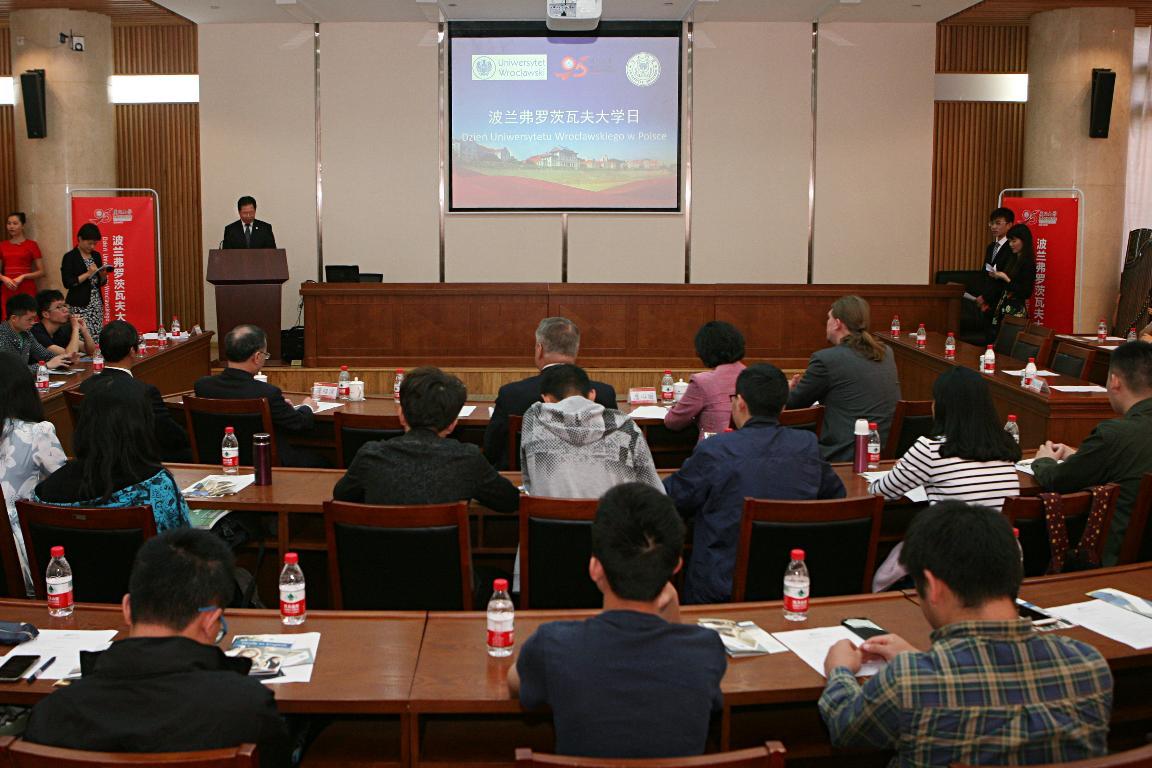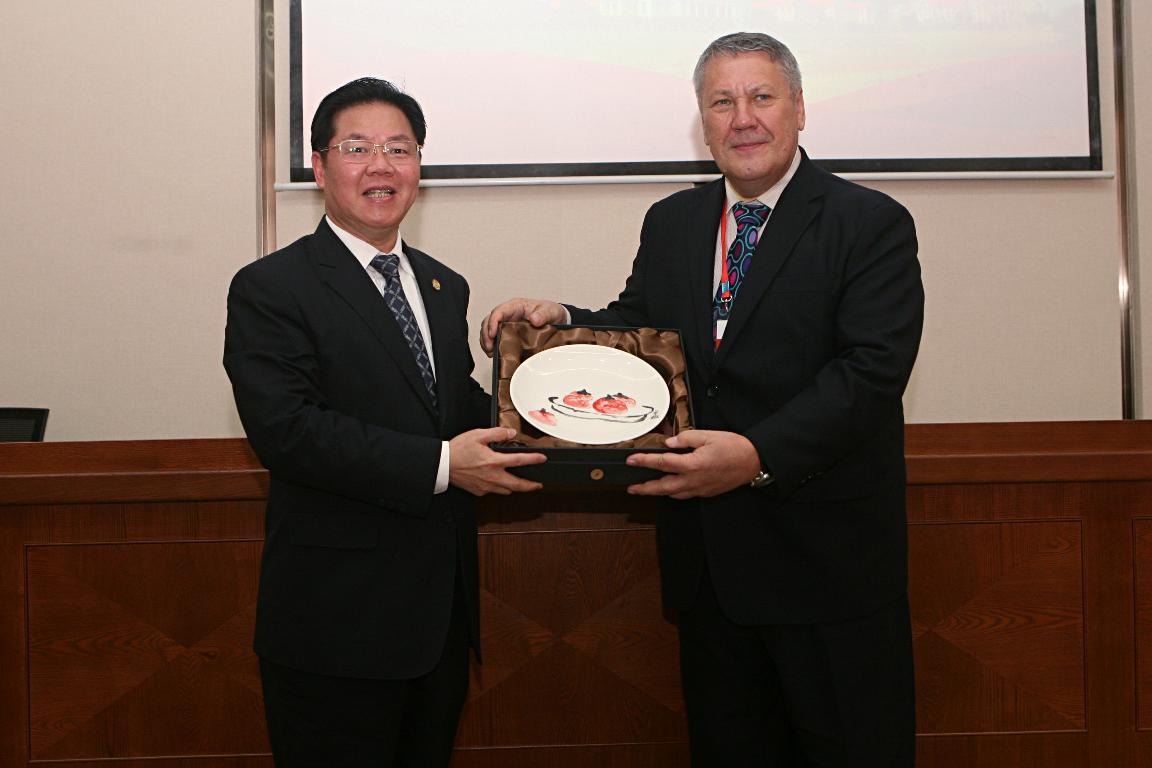University of Wroclaw Day opens a window to Poland
On April 5, as a part of the celebration of the 95th anniversary of Xiamen University, University of Wroclaw Day was open in the background music of Chopin’s works played by traditional Chinese musical instruments. The “ University Day” according to Zhu Chongshi, president of Xiamen University, in his speech at the ceremony, is a good way for the students to learn about the pluralistic cultures in the world, open the students’ field of vision and enjoy the goodness of the world.

Marek Bojarski, president of University of Wroclaw, expressed his congratulations on the 95th birthday of Xiamen University and introduced the audience to the history and status quo of the university. He encouraged students of Xiamen University to study in their university. Stefan Nowicki, dean of University of Wroclaw-based Confucius Institute (appointed by UOW) and Zhang Lilong, former dean of the Confucius Institute (appointed by XMU) also shared with the audience the colorful life of foreign students in the university.

About the University of Wroclaw: University of Wroclaw has a rich history of more than three centuries. Founded by Leopold I Habsburg the university evolved from a modest school run by Jesuits into one of the biggest academic institutions in Poland. At the beginning of the 19th century the university had five Faculties: philosophy, catholic theology, evangelical theology, law and medicine. Later it was expanded by numerous sections, laboratories and a natural museum, which exists until today. After the Second World War a group of Polish professors, formerly from Lvov, started teaching and research activities at the University of Wroclaw. Initially they created the Faculties of law and administration, arts, natural sciences, agriculture, veterinary, medicine, mathematics, physics and chemistry.
Since the beginning of the 20th century, the University of Wroclaw produced 9 Nobel Prize winners, such as Theodor Mommsen, Philipp Lenard, Eduard Buchner, Paul Ehrlich, Fritz Haber, Friedrich Bergius, Erwin Schroedinger, Otto Stern and Max Born.





